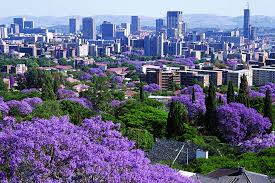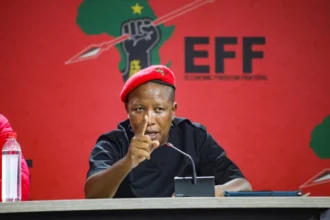In a significant diplomatic move, South Africa has asked Taiwan to relocate its unofficial embassy, the “Taipei Liaison Office,” from Pretoria, the country’s administrative capital. The South African Foreign Ministry announced the decision on Friday, giving Taiwan a six-month deadline to complete the relocation. The office will be rebranded as a “Trade Office” and moved to Johannesburg, the nation’s commercial hub.
This request comes against the backdrop of China’s increasing influence in South Africa and the ongoing global tensions surrounding Taiwan. Beijing considers Taiwan as part of its territory, even though the island functions as a self-governing democracy. While only a handful of nations officially recognise Taiwan, many maintain informal relations with the island, including South Africa.
Diplomatic Shift Reflects South Africa’s Alignment with China
South Africa’s decision to move Taiwan’s embassy and rename it as a trade office signals a deeper alignment with China’s political stance. This is particularly important as China is South Africa’s largest trading partner, with the two countries being members of the BRICS bloc, a coalition of emerging economies that also includes Russia, Brazil, and India. The timing of this decision is notable, as the annual BRICS summit is set to take place in Kazan, Russia, next week, where the growing economic partnership between China and South Africa is expected to feature prominently.
By shifting the Taipei Liaison Office to Johannesburg and renaming it, the South African Foreign Ministry said the move better reflects the “non-political and non-diplomatic” nature of its relationship with Taiwan. This is in line with South Africa’s formal break from Taiwan in 1997, when the country severed official diplomatic ties in favour of a stronger relationship with China.
The South African Foreign Ministry also noted that this decision was communicated to Beijing last month, indicating that the move was coordinated to keep China’s interests in mind. China has praised the relocation decision, with Chinese Foreign Ministry spokesperson Mao Ning welcoming South Africa’s “correct decision.”
Taiwan’s Response and Rising Regional Tensions
Taiwan’s government expressed concern over the request, hinting at possible diplomatic and trade repercussions. The Taiwanese Foreign Ministry released a statement saying it would reflect on a response that ensures the island’s sovereignty and dignity.
“If the South African government still insists on submitting to China and changing the status quo… the Ministry of Foreign Affairs will… study and formulate all possible responses in order to safeguard the sovereignty and dignity of our country,” the Taiwanese government stated. This could potentially impact Taiwan’s future engagement with South Africa.
This diplomatic manoeuvre comes at a time of heightened tension between Taiwan and China. On Tuesday, Taiwan reported detecting 153 Chinese military planes conducting drills around the island, an act that signals Beijing’s growing military assertiveness.
What This Means for South Africa’s Global Standing
South Africa’s choice to relocate Taiwan’s embassy reflects its increasingly tight-knit relationship with China. As one of the largest economies in Africa, South Africa’s role in the BRICS group and its economic reliance on China play a critical role in its foreign policy decisions. However, by appearing to submit to China’s demands, South Africa risks alienating Taiwan and potentially other nations that support the island’s sovereignty.
Moreover, this decision may raise concerns over South Africa’s independence in its foreign policy, particularly in the eyes of Western countries, some of whom have been critical of China’s aggressive tactics towards Taiwan.
Looking Forward: A Changing Diplomatic Landscape
The relocation of Taiwan’s office from Pretoria to Johannesburg highlights the balancing act South Africa faces in navigating its relationships with major global players. With China’s influence in the country growing, this move may mark the beginning of more significant shifts in South Africa’s foreign relations, particularly with nations that oppose China’s hardline stance on Taiwan.
The situation is also a reminder of the broader global divide when it comes to Taiwan. As tensions between China and Taiwan continue to escalate, countries like South Africa are increasingly feeling the pressure to align themselves with one of the world’s largest economies — at the potential cost of sacrificing relationships with smaller but strategically significant partners like Taiwan.












